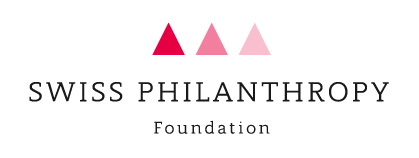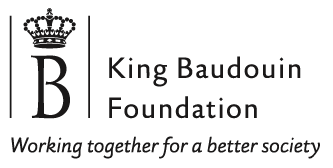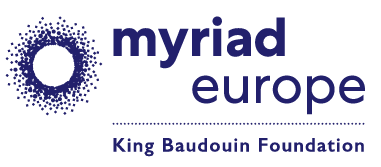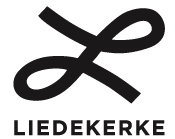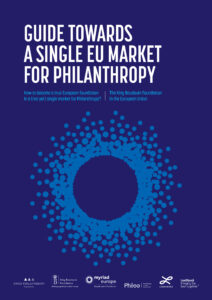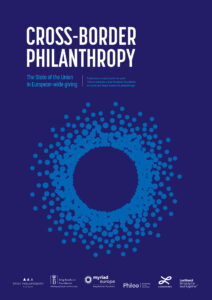A Single EU Market For Cross-Border Philanthropy
While the European Union was built on the concepts of free trade and a single market economy, cross-border philanthropy continues to face serious challenges. EU countries offer their residents tax incentives for charitable donations and bequests to domestic Non Profit Organizations (NPOs), but these same incentives may not always be available to residents who want to support NPOs in other Member States.
There are many obstacles, particularly regarding the registration, agreements, and approval processes involved in the 27 Member States for foreign NPOs having donors in another Member State. Only through this procedure can (potential) donors living in those Member States receive the tax incentives to which they are entitled.
We are closer than ever to a real single market for cross-border philanthropy.
Challenge
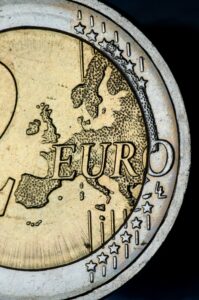
While the European Union puts much emphasis on free trade and a single market economy, cross-border philanthropy continues to face serious challenges. Even with increasing interest in donating to European causes and foreign charities, donors and beneficiaries still run up against significant administrative and tax barriers.
Unfortunately, the legal requirements and costs involved for NPOs in proving “comparability” or in becoming registered as a foreign-based NPO often prove insurmountable. This can be a deciding factor as to whether a donor – individual or corporate – supports beneficiaries outside of their tax jurisdiction, which has serious consequences for the non-profit sector and the European citizens it serves.
There are many avenues open to Member States to remove the barriers to cross-border philanthropy and collectively begin forging a giving trail across the EU.
Solution
Guides to Cross-Border Philanthropy and a Single EU Market for Philanthropy
While global philanthropy presents challenges related to legal, regulatory and logistical differences, these challenges should be minimal among EU Member States. One of the pillars of the formation of the European Union is the single market, with the free-movement principle at its core. Enshrined in EU treaties as the embodiment of fundamental European values, freedom of movement allows both people and capital to flow unhindered across EU Member States.
The Guide Towards a Single EU Market for Philanthropy, How to Become a True European Foundation in a (Not Yet) Single Market for Philanthropy, was developed in collaboration with Lex Mundi, which led the research conducted by their member firms across the 27 member states. This collaboration enabled the completion of a very detailed questionnaire by legal firms in every EU country. It is a guide for European NPOs on becoming registered in other Member States. This process, while challenging, allows donors to get the same tax incentive for making donations to foreign NPOs as they would otherwise receive by making donations to a domestic NPO.
This guide is publicly available to support every NPO and philanthropist in Europe and is published in tandem with the guide on Cross-Border Philanthropy, The State of the Union in European-Wide Giving, which details the principles, economic impact and current challenges of cross-border giving in the EU, as well as the way forward.
The King Baudouin Foundation (KBF) also launched a project to become registered or establish comparability in every EU Member State. In essence, KBF is testing the guide by following the procedures reported by legal authorities in every EU Member State. By going through the process itself, KBF will be able to share the experience with fellow NPOs, with legal firms, with philanthropists and with both EU and national policymakers.
Through the Lex Mundi network of independent law firms, KBF and its partners engaged legal assistance in every country to describe the process of becoming a registered NPO in that country.
Impact

There are more than 186,000 philanthropic organisations in the EU, the largest number of any continent. They collectively spend €54.5 billion annually for the public good, a figure well over one-third of the EU’s total payment budget for 2024. The combined assets of public-benefit foundations alone is over €647 billion.
These guides provide a snapshot of the philanthropy landscape in Europe; offer a wealth of detailed information on recognition, registration and tax incentives in each country and will remain a resource to help the non-profit sector advance towards a single market for philanthropy; provide a step-by-step guide for all potential beneficiaries to become registered, or otherwise recognised, in the EU Member State(s) of their choice; and are a call to action to Member States and to the European Commission and Parliament to create a truly single market for philanthropy.
The guides make very clear the differences among the countries in terms of complexity of the process of proving comparability or becoming registered and whether there is a process in place at all. In this context, it is a testament to the need for a unified process to allow cross-border philanthropy in the EU and EEA. It is important to understand that even if these guides open doors for some NPOs, they also lay bare the disparity within the philanthropy sector. A small organisation will not necessarily have the time or the means to become registered in multiple countries. What KBF is doing cannot be replicated across the entire sector. This is another reason why KBF and partners point to the non-discrimination principle in the context of cross-border philanthropy. When not all NPOs have equal access to the mechanisms of philanthropic giving, we have a fundamental discrepancy in the equal and fair chance to access opportunities.
KBF and its partners believe that every NPO should have equal access to the information required to receive donations and bequests from all EU citizens — regardless of where they live or pay taxes.
